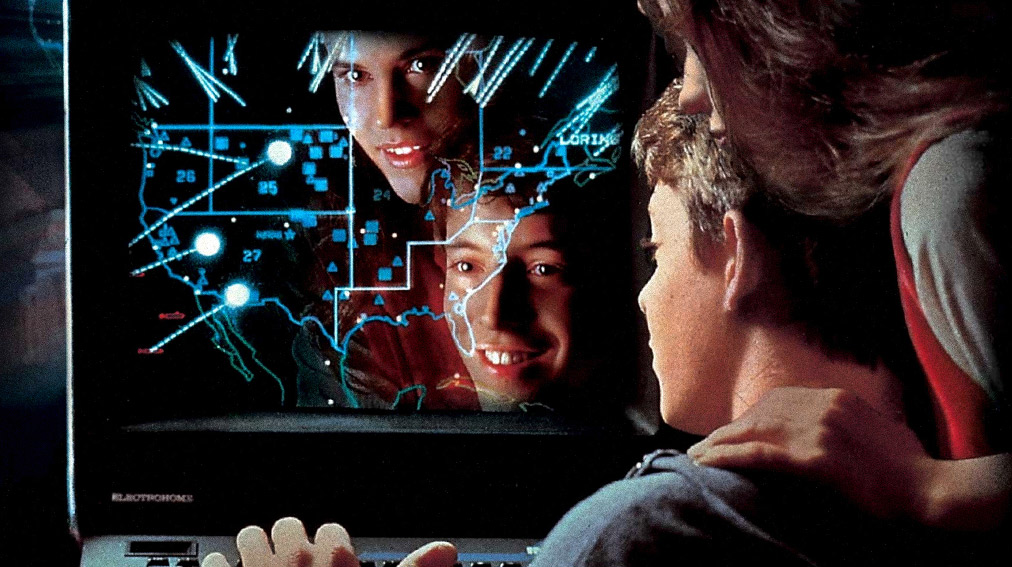In WarGames, the 1983 American Cold War science-fiction film directed by John Badham, David J. Lightman is a young hacker, son of the post oil crisis America, who unwittingly accesses WOPR (War Operation Plan Response), a United States military supercomputer programmed to predict possible outcomes of nuclear war. Lightman gets WOPR, or «Joshua», to run a nuclear war simulation, originally believing it to be a computer game. The simulation causes a national nuclear missile scare and nearly starts World War III. The computer indeed stages a massive Soviet first strike with hundreds of missiles, submarines, and bombers. Believing the attack to be genuine, NORAD (North American Aerospace Defense Command) prepares to retaliate. But David convinces military officials to cancel the second strike and rule out the non-existent attack. Joshua tries to launch the missiles, however, using a brute force attack to obtain the launch code. Without humans in the silos as a safeguard, the computer will trigger a mass launch. All attempts to log in and order Joshua to cancel the countdown fail, and all weapons will launch if the computer is disabled. Instead David directs the computer to play tic-tac-toe against itself. This results in a long string of draws, forcing the computer to learn the concept of futility. Joshua obtains the missile code but before launching, it cycles through all the nuclear war scenarios it has devised, finding they too all result in stalemates. Having discovered the concept of Mutually Assured Destruction (“WINNER: NONE”), the computer concludes that nuclear warfare is a strange game in which the only winning move is not to play. Joshua then offers to play a nice game of chess, and relinquishes control of NORAD and the missiles.
Thirty years later, this film hides a great truth that affects all of us. The distance between what we do and the consequences of our actions is wider and wider. Just like a modern David J. Lightman, every day we sit at the computer without realizing what is behind everything we do and own. We are not aware of what the impact of our habits on the world is. Let’s think about the production of food that has now assumed dynamics of mass-production. We went from a logic in which man was a direct manufacturer of the food we used to eat (and therefore we were aware of its origin), to a logic in which the man has become unaware of where and how the food we eat is produced, exponentially increasing the distance between the subject consumed (food) and the consumer subject (man).
Within the fifth part of my book «Fai Fiorire il Cielo» I highlighted how today we can’t help being aware of our environmental impact on the world. Where do all the things we use, eat and consume come from? Where are they produced? And where do they go once we got rid of them? The concept of production itself is actually inadequate because it doesn’t consider the final part of the life cycle of a product. In the film «e-wasteland», director David Fedele shows how thousands of people (be they men, women and children) live and work in Agbogbloshie, a suburb of the African city of Accra, Ghana’s capital, which has become one of the largest dump for electronics and technology goods, often illegally imported.
Nowdays the David J. Lightman paradigma has gone far beyond the Cold War and world peace. It concerns all of us. Behind the unawareness of the consequences of our way of life the future of the whole world is at stake, and not only as the population that inhabits it but also as ecosystem.
